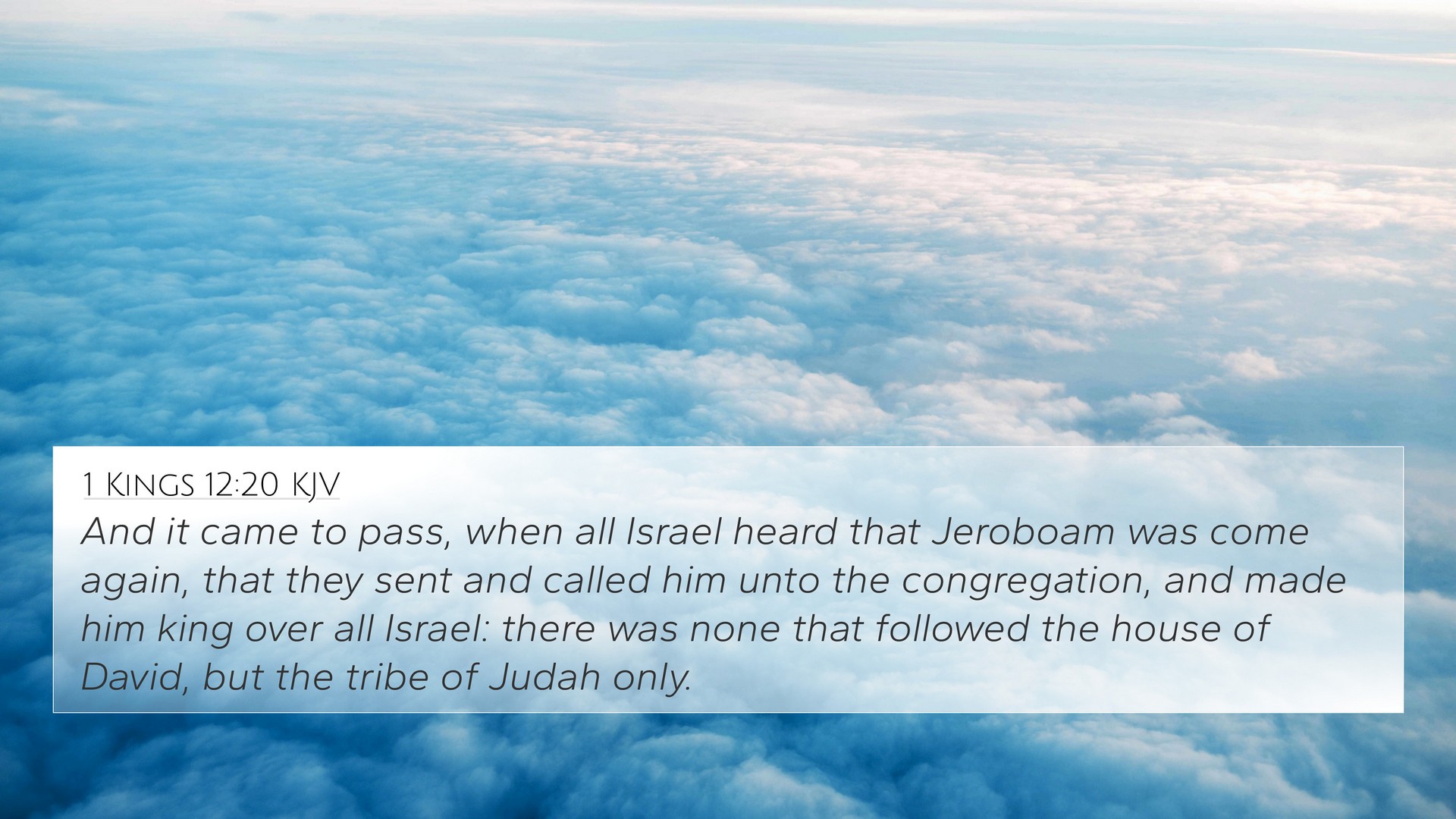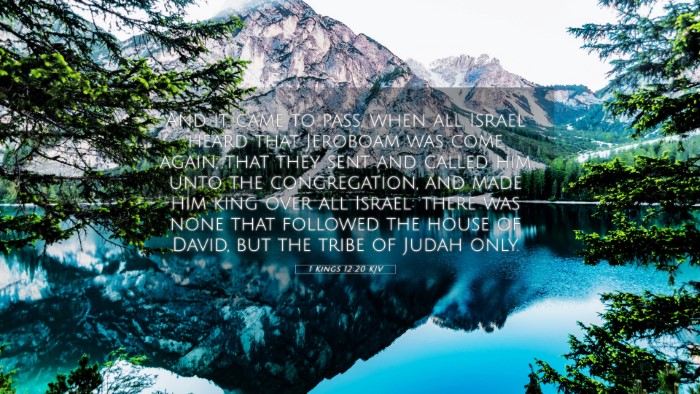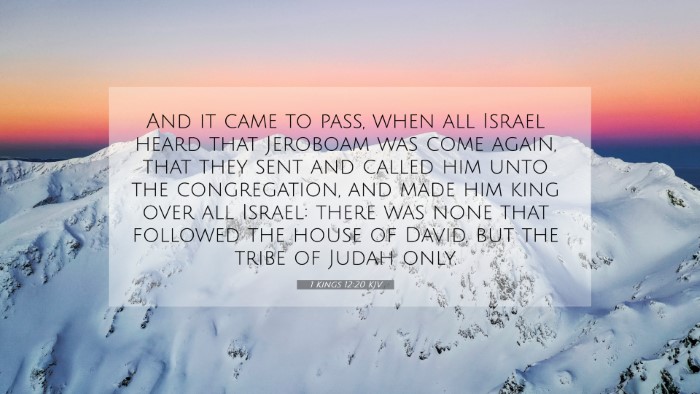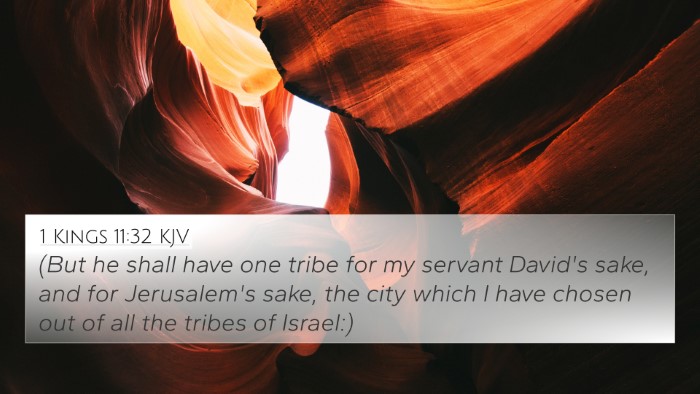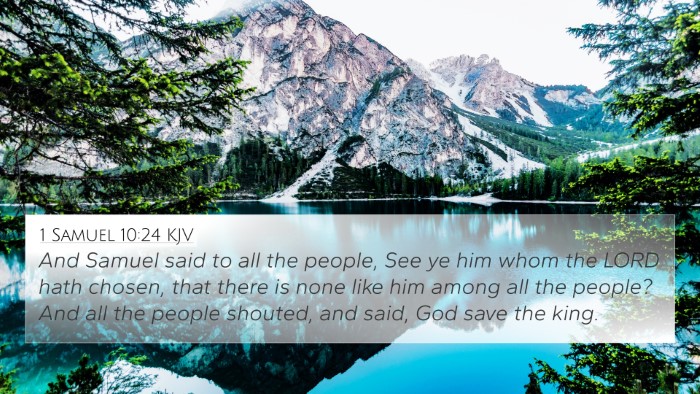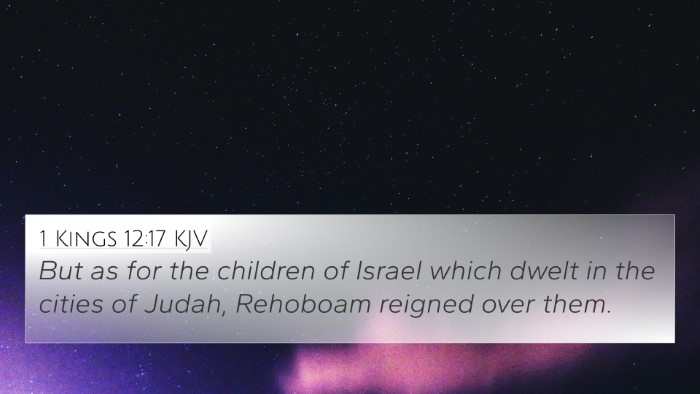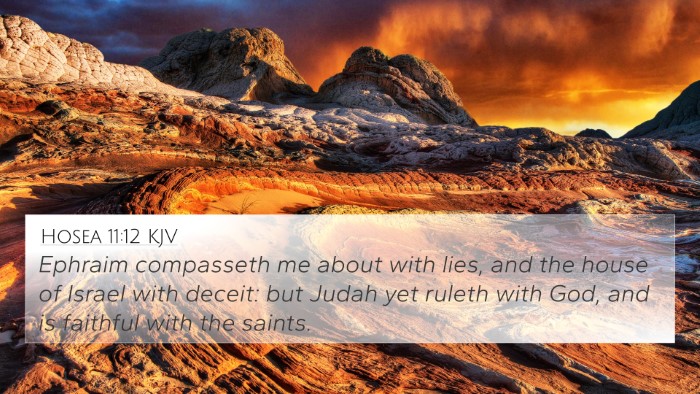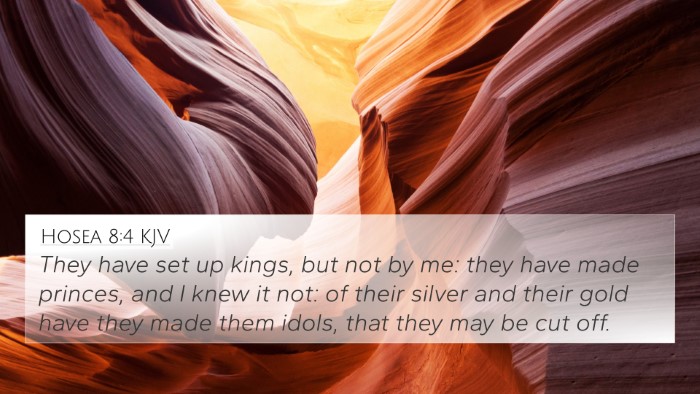Exploring 1 Kings 12:20 - Meaning and Interpretation
1 Kings 12:20 states: "And it came to pass, when all Israel heard that Jeroboam was come again, that they sent and called him unto the congregation, and made him king over all Israel: there was none that followed the house of David, but the tribe of Judah only."
This passage marks a significant turning point in the history of Israel, as it highlights the division of the kingdom following Solomon's reign. The verses surrounding this event offer rich insights when engaging in Bible verse cross-references, especially in understanding the prophetic and historical context of Israel.
Commentary Insights
Matthew Henry's Commentary
Henry explains that this verse captures the culmination of a series of events leading to civil unrest in Israel. Jeroboam's return signifies not just a political shift but also a fulfillment of prophecy regarding the division of the kingdom. The response of the Israelites in rallying behind Jeroboam demonstrates their discontent towards Rehoboam’s leadership and the heavy burdens imposed during Solomon's reign.
Albert Barnes' Notes
Barnes emphasizes that the call for Jeroboam indicates a repudiation of the Davidic line's authority, marking the definitive break from Jerusalem's control. He further discusses the implications of this change, which resonate throughout the narrative of the Old Testament, illustrating the themes of rebellion and divinely ordained leadership.
Adam Clarke's Commentary
Clarke provides a detailed examination of the socio-political circumstances of this verse. He discusses how Jeroboam's ascendancy signifies not merely a rejection of Rehoboam but also raises questions about divine providence and the fulfillment of God's promises to David contrasted with Israel's choices.
Key Themes and Connections
- Division of the Kingdom: This event is foundational for understanding the later narratives in the Old Testament, particularly regarding the divided monarchy.
- Judgment and Leadership: The verse showcases themes of divine judgment where God allows the people's request for a king according to their desires.
- Human Agency versus Divine Sovereignty: The dynamics between God's sovereignty and human decision-making are now on full display.
Cross-Referencing Biblical Texts
To deepen the understanding of 1 Kings 12:20, we can look at related verses. Here are some pertinent Bible verses that relate to each other regarding themes of kingship and rebellion:
- 1 Samuel 8:7-9: Israel's rejection of God as king when they sought a human king.
- 2 Samuel 7:12-16: God's covenant with David and the promise of a lasting dynasty.
- 1 Kings 11:11-13: God's warning to Solomon about the consequences of his idolatry, leading to the kingdom's split.
- 1 Kings 12:1-19: The events preceding this verse showcase the conditions that led to Jeroboam's rise.
- 2 Chronicles 10:1-19: A parallel account that provides additional context to the circumstances surrounding Rehoboam's reign and the revolt.
- Isaiah 7:17: A look at God's judgment against the house of David, foretelling political turmoil.
- Hosea 1:4-6: Referring to the division of Israel as a punishment for their unfaithfulness.
Thematic Connections
When considering inter-Biblical dialogue, it's crucial to recognize how these early divisions set the stage for later prophetic books. The narrative of 1 Kings establishes a pattern echoed in the New Testament where issues of leadership and obedience to God remain central.
Applications and Reflections
This passage challenges readers to reflect on leadership dynamics, questioning how choices resonate through time. It emphasizes the importance of alignment with divine will as seen through the consequences faced by both Jeroboam and Rehoboam—each representing choices stemming from human desires rather than divine guidance.
Conclusion
In summary, 1 Kings 12:20 encapsulates a major shift in Israel's history, rich with themes that replay throughout scripture. By referencing other connected texts, one can gain a holistic view of scriptural narratives that explore leadership, rebellion, and God's sovereignty. Utilizing tools for Bible cross-referencing allows scholars and laypersons alike to effectively draw connections and deepen their understanding of the Word.
